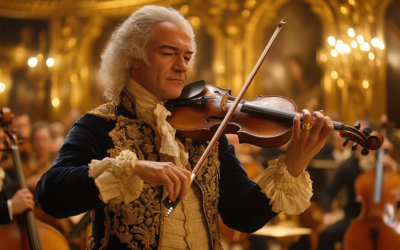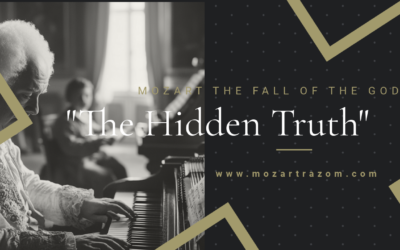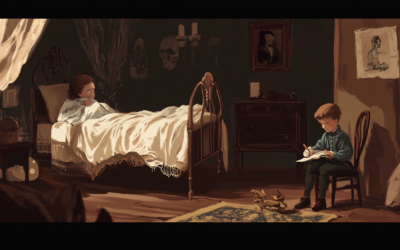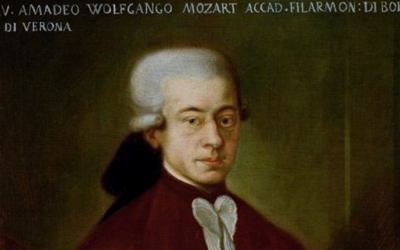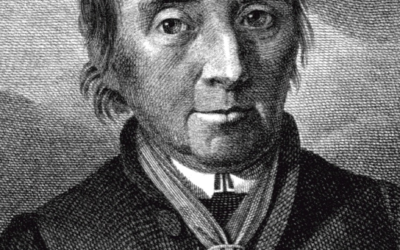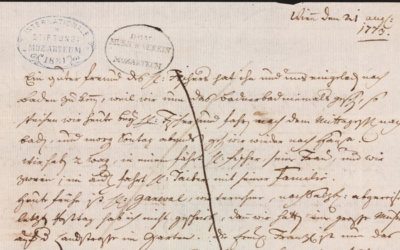New Revelations About Mozart
at the Évora Forensic Conference
At the Évora Forensic Conference, new research confirmed that both Mozart’s personal catalogue and the signatures on his violin concertos are forgeries, challenging long-held beliefs.
Mozart: The Fall of the Gods
This book offers a fresh and critical look at the life of Wolfgang Amadeus Mozart, challenging the myths that have surrounded him for centuries. We strip away the romanticised image of the “natural genius” and delve into the contradictions within Mozart’s extensive biographies. Backed by nearly 2,000 meticulously sourced citations, this work invites readers to explore a deeper, more complex understanding of Mozart. Perfect for those who wish to question the traditional narrative, this biography is a must-read for serious music lovers and historians.
"The bass clefs and signatures once thought to be Mozart’s have now been revealed as forgeries, rewriting 250 years of music history."
@MozartrazoM
Exciting Mozart-related discoveries were unveiled at the International Conference on Forensic Handwriting and Document Examination held in Évora, Portugal. In the photo, we are at the University of Évora alongside Dr. Anthony Jarvis from Darwin University in Australia and Professor Heidi Harralson, a Board Certified Forensic Document Examiner from East State Tennessee University, a renowned author in forensic document analysis for court experts.
All four of us focused on Wolfgang Amadé Mozart during our time in Évora. Besides our scientific paper on Mozart’s personal catalogue, two other groundbreaking papers were presented. The first, by Anthony Jarvis, examined the bass clefs in Mozart’s personal catalogue. Through statistical and geometric analysis, Jarvis proved that the bass clefs in the catalogue are incompatible with Mozart’s handwriting, further supporting our claim that the catalogue was not written by Mozart but is a forgery.
The second paper, presented by Professors Heidi Harralson and Martin Jarvis, scrutinised the so-called autograph signatures on the manuscripts of Mozart’s violin concertos. Their research revealed that these signatures, believed to be authentic for 250 years, are also forged.
You May Also Like
The Violin Concertos: Mozart’s Borrowed Genius
Mozart’s violin concertos are often celebrated as masterpieces, but how much of the music is truly his? This article delves into the complexities behind the compositions and challenges the authenticity of some of his most famous works, revealing a story of influence, imitation, and misattribution.
#2 The Hidden Truth of Mozart’s Education
In this video, we uncover the hidden truth behind Wolfgang Amadeus Mozart’s early education and challenge the long-held belief in his effortless genius. While history often celebrates Mozart as a child prodigy, effortlessly composing music from a young age, the reality is far more complex.
The London Notebook
The London Notebook exposes the limitations of young Mozart’s compositional skills and questions the myth of his early genius. His simplistic pieces, fraught with errors, reveal a child still grappling with fundamental musical concepts.
The Mozart Question
In this revealing interview, we delve into the lesser-known aspects of Wolfgang Amadeus Mozart’s life, challenging the long-standing myth of his genius. A Swedish journalist explores how Mozart’s legacy has been shaped and manipulated over time, shedding light on the crucial role played by his father, Leopold, in crafting the career of the famed composer.
Georg Nissen and the Missing Notebooks
After Mozart's death, his widow, Constanze, found a steadfast partner in Georg Nikolaus von Nissen, a Danish diplomat who dedicated his life to preserving the composer's legacy. Nissen not only compiled an extensive biography of Mozart but also uncovered and...
Letters Under Surveillance
In a world without privacy, Leopold Mozart’s letters were carefully crafted not just to inform but to manipulate perceptions. His correspondence reveals a calculated effort to elevate his family’s status while avoiding any mention of failure or controversy.


